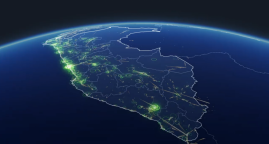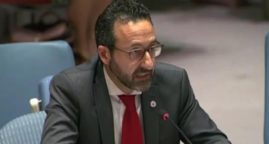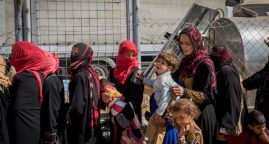How Settlement Businesses Contribute to Israel’s Violations of Palestinian Rights
As documented in this report, it is Human Rights Watch’s view that by virtue of doing business in or with settlements or settlement businesses, companies contribute to one or more of these violations of international humanitarian law and human rights abuses.
“Settlement businesses depend on and benefit from Israel’s unlawful confiscation of Palestinian land and other resources, and facilitate the functioning and growth of settlements. Settlement-related activities also directly benefit from Israel’s discriminatory policies in planning and zoning, the allocation of land, natural resources, financial incentives, and access to utilities and infrastructure. These policies result in the forced displacement of Palestinians and place Palestinians at an enormous disadvantage in comparison with settlers. Israel’s discriminatory restrictions on Palestinians have harmed the Palestinian economy and left many Palestinians dependent on jobs in settlements—a dependency that settlement proponents then cite to justify settlement businesses.”
Almost immediately after Israel’s military occupation of the West Bank in June 1967, the Israeli government began establishing settlements in the occupied Palestinian territories. From the outset, private businesses have been involved in Israel’s settlement policies, benefiting from and contributing to them. This report details the ways in which Israeli and international businesses have helped to build, finance, service, and market settlement communities. In many cases, businesses are “settlers” themselves, drawn to settlements in part by low rents, favorable tax rates, government subsidies, and access to cheap Palestinian labor.[1]
In fact, the physical footprint of Israeli business activity in the West Bank is larger than that of residential settlements. In addition to commercial centers inside of settlements, there are approximately 20 Israeli-administered industrial zones in the West Bank covering about 1,365 hectares, and Israeli settlers oversee the cultivation of 9,300 hectares of agricultural land. In comparison, the built-up area of residential settlements covers 6,000 hectares (although their municipal borders encompass a much larger area).
Related Articles
Surveillance for good? Facebook tracks disaster victims
06/08/2017. The initiative will use aggregated and anonymised Facebook user data to produce 3 different kinds of maps: where people are checking in as safe; where populations are before, during, and after a natural disaster; and where people are moving to in the hours after disaster strikes.
ICRC appoints new director-general
10/31/2019. The Assembly of the International Committee of the Red Cross (ICRC) has appointed Robert Mardini to the post of director-general.
UN refugee chief says protecting Mosul civilians is key
10/17/2016. UN High Commissioner for Refugees Filippo Grandi said the protection of civilians is key to Iraq’s future and should be foremost in the government’s strategy.






